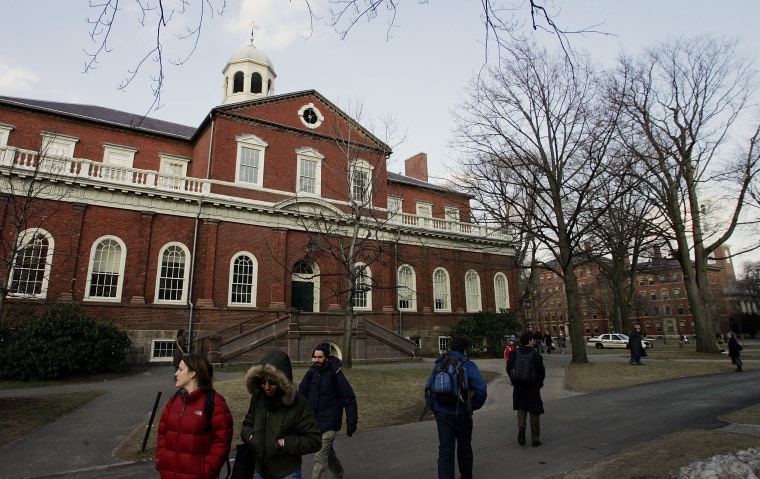BOSTON — U.S. educators on Wednesday endorsed a Harvard University-developed proposal to reform college admissions by relying less on high-stakes tests, and more on teens demonstrating a passion for learning and long-term volunteer projects.
The proposal aims to reduce the pressure on teenagers to pack their resumes with extracurricular activities and spend months preparing for the SAT and ACT tests, encouraging them to instead focus on academic subjects and social causes they find meaningful.
"Too often, today's culture sends young people messages that emphasize personal success rather than concern for others and the common good," said Richard Weissbourd, a senior lecturer at Harvard's Graduate School of Education, and a co-director of the Making Caring Common group that developed the proposal.
The proposal titled "Turning the Tide" has been endorsed by about 80 educators, including top admissions officials at major U.S. universities ranging from the Massachusetts Institute of Technology and Columbia University to the University of North Carolina and Purdue University.
The initiative, which has backing from some U.S. high schools and educational associations, is intended to make the college admissions process less daunting for low-income families.
It encourages colleges to revise their applications to ask students about two or three extracurricular activities, rather to encourage them to submit long lists of sports and clubs they participate in and to consider make standardized tests optional or discouraging students from taking them more than twice.
Some 1.7 million students took the SAT in 2014, the most recent year for which data is available, and 1.8 million took the ACT. Pressure to perform well on the tests has spawned a $9 billion test-prep industry.

"Escalating achievement pressure is not healthy for our youth. Young people are suffering from higher rates of depression, anxiety and substance abuse as they juggle the demands of their lives," said Kedra Ishop, an associate vice president for at the University of Michigan, who endorsed the proposal.
The proposal recommended that colleges that continue to rely on the standardized tests make clear how much influence they have over admission decisions.
It also recommends that colleges look for applicants who show long-term commitment to service projects in their own communities.
"Too often, current forms of service are patronizing to recipients and don't spark in those providing service a deeper understanding of social structures and inequalities," the report said. "Rather than students 'doing for' students from different backgrounds, for example, we encourage students to 'do with,' to work in diverse groups for sustained periods of time."